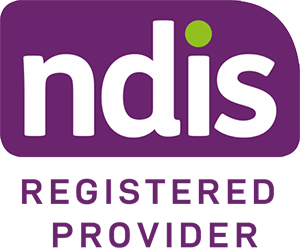Attention Deficit Hyperactivity Disorder (ADHD) is a common neurodevelopmental difference (brain type) which has a number of strengths and advantages but can also pose some difficulties. As school returns for the year, parents and/or teachers may be wondering how to support children they suspect may have ADHD.
Luckily there is plenty of help available! Or experienced team of psychologists at Beam can support your child with their individual needs.
Understanding ADHD in Children
While ADHD stands for Attention Deficit Hyperactivity Disorder, it is better understood as a brain type that can at times find it challenging to regulate where attention goes. Individuals with this brain type often take in all the information around them at once, making it difficult to distinguish between what needs focus and what is less important. As you can imagine, this can significantly impact daily life.
There are three subtypes of ADHD, which means it can present in vastly different ways in different people. There is the predominantly inattentive subtype (e.g. forgetfulness, difficulties with concentration, organisation), the predominantly hyperactive subtype (e.g. fidgeting, restlessness, appearing ‘on the go’) and combined type (which as you imagine involves both inattentive and hyperactive traits).
In the classroom, having a good understanding of neurodiversity for the child and the adults around them can help improve academic performance, relationships, and self-esteem. Research has shown that untreated or undiagnosed ADHD can lead to negative mental health outcomes for children, including symptoms of anxiety and depression.

Benefits of Early Diagnosis
Early diagnosis of ADHD helps young people understand their brain type and supports their confidence and self-esteem. With the right support, children with ADHD can develop coping strategies and understand their individual needs and differences. Early identification also helps in reducing the risk of secondary mental health challenges such as anxiety and depression.
How Beam Can Help
Our friendly team of Psychologists use evidence-based tools and strategies to assess your child to ensure accurate diagnosis and provide the individualised recommendations and strategies. Our approach includes:
- Strengths based and neurodiverse affirming practice
- Collaboration with relevant stakeholders to ensure a holistic understanding of your child’s needs
- Child focussed assessment sessions
- Comprehensive diagnostic reports with individualised recommendations for home and school
Why Choose Beam for an ADHD Assessment?
The psychologists at Beam Health Kedron are experienced and skilled at working with children, including assessing and providing support for those with ADHD. Supports available for children with ADHD traits or diagnoses include:
Comprehensive ADHD Assessments
Comprehensive assessments provide a detailed evaluation and understanding of a child’s symptoms and their impact on daily life. This process includes consultations with key individuals such as parents/caregivers and teachers, observations, standardised testing, and collaboration with the child and their family.
Individualised Recommendations and/or Therapy
Tailored recommendations and therapy that focus on your child’s strengths while supporting them to understand their differences. Our team also provides support to parents/caregivers navigating the challenges of raising a neurodivergent child, as well as training and guidance for teachers.
Experienced Psychologists
Team of qualified and experienced Psychologists who work within a neurodiverse affirming approach.

The Assessment Process
The ADHD assessment process typically involves multiple steps to ensure an accurate diagnosis:
1. Initial Consultation
A thorough discussion with parents/caregivers to understand the child’s history and symptoms. Where appropriate the child may be included in this step to ensure their lived experience is understood.
2. Behavioural Observations
Observing the child’s behaviour in different settings, such as in the clinic, home or school.
3. Standardsised Testing
Using validated tools to assess your child’s attention, impulsivity, and hyperactivity levels, while differentiating those from other potential causes/diagnoses.
4. Feedback Session
Providing parents/caregivers with a detailed report and recommendations for intervention.

At Beam Health, we are committed to supporting families through every step of the assessment and intervention process and would love to support you and your child to understand their brain type!
For more information or to book an appointment, visit our website or contact us today.
The Australian Psychological Society (APS) also has some useful information.












